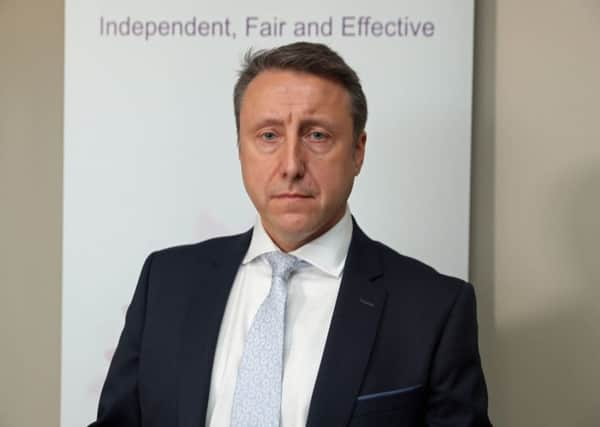‘Insufficient evidence’ for cases against IRA suspects


The Director of Public Prosecutions for Northern Ireland, Stephen Herron, made the announcement to families of the deceased and those injured on Bloody Sunday during a private meeting at the City Hotel.
Afterwards, Mr Herron said: “An experienced team of senior prosecutors assisted by senior counsel has given careful consideration to all of the available evidence in these cases and applied the test for prosecution, in line with the Public Prosecution Service code for prosecutors.
Advertisement
Hide AdAdvertisement
Hide Ad“It has been concluded that there is sufficient available evidence to prosecute one former soldier, Soldier F, for the murder of James Wray and William McKinney; and for the attempted murders of Joseph Friel, Michael Quinn, Joe Mahon and Patrick O’Donnell.
“In respect of the other 18 suspects, including 16 former soldiers and two alleged Official IRA members, it has been concluded that the available evidence is insufficient to provide a reasonable prospect of conviction. In these circumstances the evidential test for prosecution is not met.”
The PSNI investigation into the events of Bloody Sunday commenced in 2010, following the publication of the findings of a public inquiry led by Lord Saville.
Mr Herron continued: “There has been a level of expectation around the prosecution decisions in light of the findings of the Bloody Sunday Inquiry.
Advertisement
Hide AdAdvertisement
Hide Ad“However, much of the material which was available for consideration by the inquiry is not admissible in criminal proceedings, due to strict rules of evidence that apply.
“I wish to clearly state that where a decision has been reached not to prosecute, that this is in no way diminishes any finding by the Bloody Sunday Inquiry that those killed or injured were not posing a threat to any of the soldiers.”
He added: “We recognise the deep disappointment felt by many of those we met with today. As prosecutors we are required to be wholly objective in our approach. However, that does not mean that we do not have compassion for all those who are affected by our decisions.
“Our role is to independently assess the available evidence and apply the test for prosecution.”
A summary of the reasons for the decisions taken by the PPS was made available on its website to “provide assurance to the public” of impartiality.